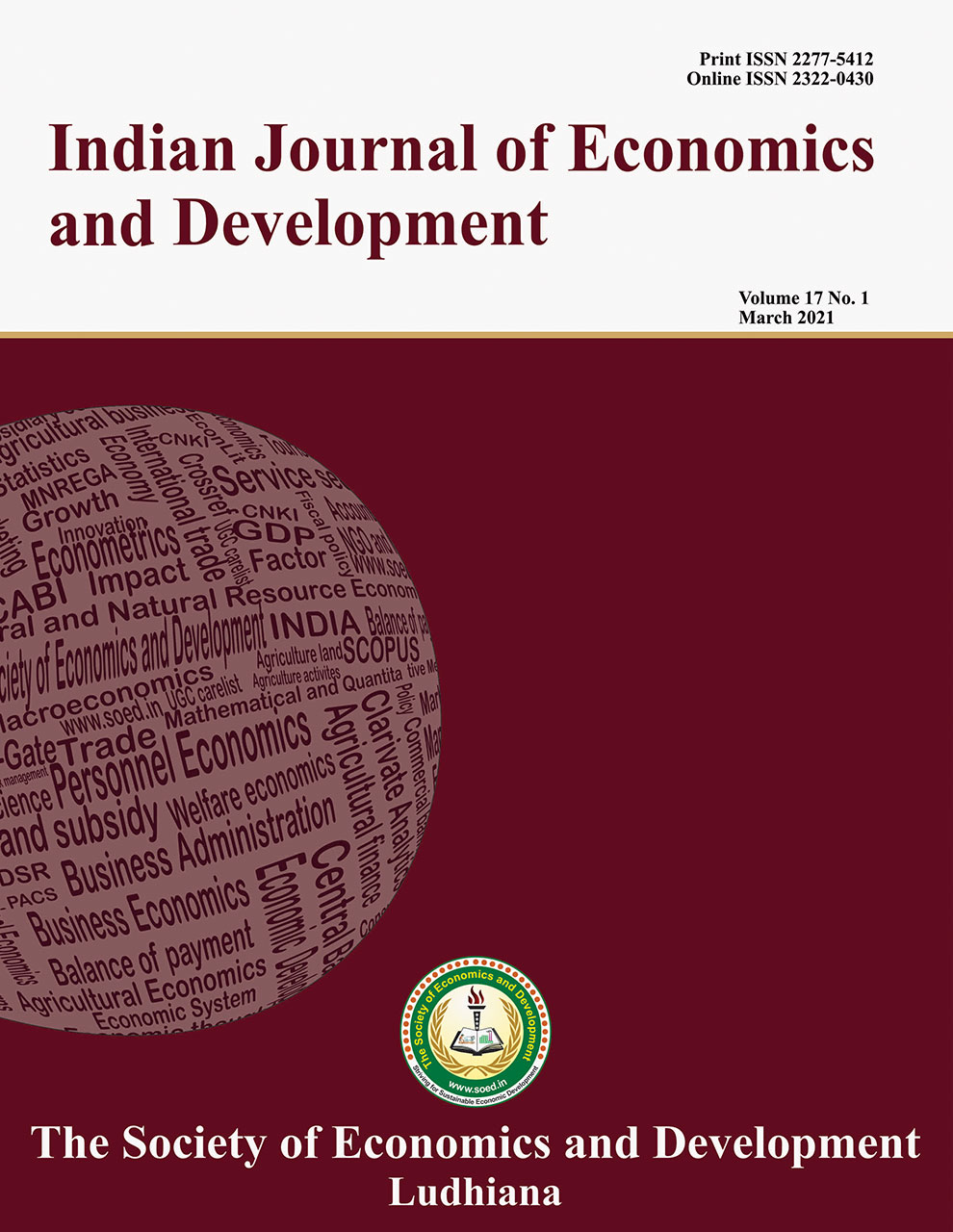A Cross Country Study of Financial Inclusion and Economic Development with Special Emphasis on India

Price: ₹ 500
Author: Aniruddh Sahai and Ravinder Kumar
Author Address: Ph.D. Research Scholar and Dean, Faculty of Social Sciences Department of Commerce and Business Studies Jamia Millia Islamia, New Delhi-110025 (Delhi)
Keywords: Banking, economic development, financial inclusion, human development index, RBI
JEL Codes: G21, O10, R51
Abstract
Policymakers generally associate financial inclusion with economic growth and poverty alleviation. This paper explores the empirical relationship between the Human Development Index (HDI) and Index of Financial Inclusion (IFI) across 128 countries using correlation and regression analysis in STATA. The study revealed their interdependence and showed that developed nations (with high incomes and HDI Ranks) had greater inclusion than less-developed countries. Other socioeconomic variables, including per-capita income, urbanization, and literacy rate, also exhibited a strong correlation. Hence, reducing inequalities and focusing on the inclusion of certain sections of society (especially rural, poor, women, and farmers) in the financial system is crucial. Structured programs by RBI, Government, and NGOs can help to improve financial literacy. Deeper penetration of financial services in specific states (Bihar, Uttar Pradesh, Jharkhand, and the North-Eastern States) and enhanced internet connectivity will also be helpful.
Description
Indian Journal of Economics and Development
Volume 17 No. 1, 2021, 11-24
DOI: https://doi.org/10.35716/IJED/20245
Indexed in Clarivate Analytics (ESCI) of WoS
Indexed in Clarivate Analytics (ESCI) of WoS
Scopus: Title Accepted
NAAS Score: 5.15



